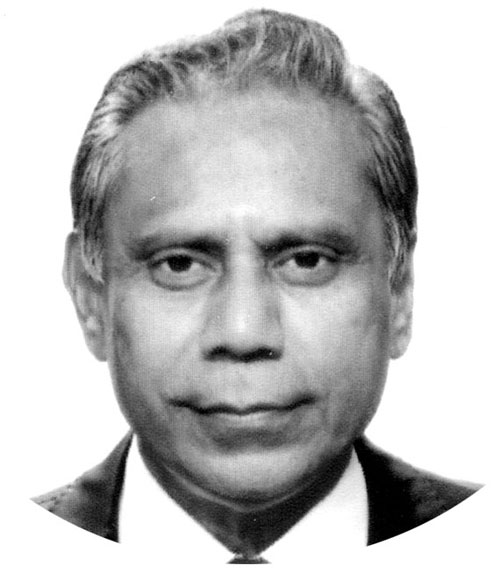CPC & human rights protection — A 100-year quest
ON the eve of the centenary of the Communist Party of China (CPC), China’s State Council Information Office has issued a white paper titled “The Communist Party of China and Human Rights Protection – A 100-Year Quest”.
According to the white paper, over the past century, the CPC has invested a huge effort in human rights protection, adding significantly to global human rights progress.
It is remarkable that for a country fraught with struggle of various natures, including the massive effort to overthrow the yoke of slavery of Japanese imperialism, ridding the country of the tyrannical rule of the Kuomintang, overcoming the calamities of famine and other tribulations, the country has emerged as an economic giant.
The People’s Republic of China has become the first country in the world to overcome absolute poverty despite at one time being impoverished and treated as a pariah state by the Occident.
The secret of its success lies in the fact that for over a century, the CPC has always put people first, applying the principle of universality of human rights in the context of the national conditions.
It regards the rights to subsistence and development as the primary and basic human rights, and believes that living a life of contentment is the ultimate human right.
The CPC promotes the well-rounded development of the individual, and strives to give every person a stronger sense of gain, happiness and security. Its success in pioneering human rights in a socialist country is unique and readily apparent.
Some of the notable landmarks in this respect is that the life expectancy of Chinese citizens rose to 77.3 years in 2019, compared with 35 years in 1949.
According to the document, the CPC ensures the right to subsistence, and that China has engaged in a huge program of poverty reduction focusing on development-driven poverty alleviation in rural areas.
In 2020, China’s GDP reached 101.6 trillion yuan (about $15.7 trillion), and per capita GDP was 72,000 yuan, more than the threshold of $10,000 for the second year. The CPC has also integrated law-based governance with human rights protection.
Under the leadership of the CPC and based on the Constitution, a Chinese socialist system of laws has taken shape, providing a relatively complete legal system to protect human rights.
As of April 2021, there were 277 laws in force in China, including the Constitution and related laws, civil and commercial law, administrative law, economic law, social law, criminal law and procedural law related to litigation and non-litigation.
Despite criticism by the West, which has been in awe of China’s massive economic progress, it is notable that human rights progress in China, guided by a people-centered philosophy, has gone beyond the development of Western views on human rights and its practice in protecting humans.
For a hundred years, the CPC has committed itself to peaceful development and common progress.
China is firm in its international stance—to safeguard world peace and seek progress through cooperation, ensuring human rights with the benefits deriving from development, according to the white paper.
In a world troubled by human rights issues, China has been an active participant in matters of international human rights, providing a Chinese contribution to global human rights governance and progress, and working with other countries to forge a global community of shared future, according to the white paper.
To meet the challenges of international conflicts, China has sent more than 40,000 military personnel to participate in about 30 UN peacekeeping missions in Sudan, Lebanon, Cambodia, Libya and other countries and regions.
The country now ranks first among the permanent members of the UN Security Council in terms of the number of peacekeepers dispatched, and is the second largest fund contributor to the UN’s peacekeeping actions.
China has signed 26 international human rights instruments, including six core UN conventions, the white paper showed, adding that China fulfils its obligations prescribed in these human rights conventions, ensures that the formulation, legislation and any amendments of its laws and policies are consistent with these conventions.
As the nation celebrates the centenary of the CPC, the party is leading the people towards the Chinese dream of national rejuvenation and the second centenary goal—to build China into a great modern socialist country that is prosperous, strong, democratic, culturally advanced, harmonious and beautiful by the centenary of the People’s Republic of China.
Once this imposing objective is achieved, all rights of the Chinese people will be safeguarded at a higher level, and they will have a better sense of dignity, freedom and happiness.
China will make a greater contribution to the protection of human rights, enabling the world to develop better and become more prosperous, said the white paper.
Some of the salient features of the white paper, in a nutshell are: The CPC upholds the rights to subsistence and development as the primary and basic human rights and works hard to ensure and improve people’s wellbeing through development.
The CPC has strived for people’s liberation and well-being. Since the founding of the People’s Republic of China in 1949, the CPC has established systems that respect China’s actual conditions and ensure the people’s principal status as masters of the country.
China has integrated its national human rights action plans with its national development plans.
The principle of respecting and protecting human rights has been embedded in the governance of the CPC. Well done China, you have set the bar pretty high for others to emulate.
—The writer is retired PAF Group Captain and a TV talk show host.










